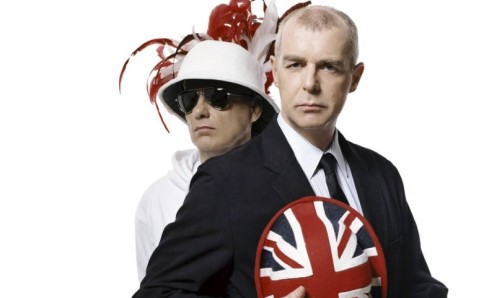Information about the so-called “black list” appeared in the Belarusian mass-media on March 2, 2011. The list enumerates famous singers, bands, actors, poets and artists. Some of the banned men of art are Uladzimir Khalip (father of journalist Iryna Khalip, wife of ex-candidate for presidency Andrei Sannikau), Yury Khashchavatski (the director of documentaries about Aliaksandr Lukashenka and brutal dispersal of protesters after the 2006 elections), all the troupe of half-underground “Free Theatre” and others
 The foreign artists got to the list because of their participation in “Global artistic campaign in solidarity with Belarus” initiated by “Free Theatre”. The list includes Jude Law, Kevin Klein, Kevin Spacey, Pet Shop Boys, left, The Thoughts, Wah Wah 45 and others.
The foreign artists got to the list because of their participation in “Global artistic campaign in solidarity with Belarus” initiated by “Free Theatre”. The list includes Jude Law, Kevin Klein, Kevin Spacey, Pet Shop Boys, left, The Thoughts, Wah Wah 45 and others.
Russian bands who signed the petition to the Belarusian authorities urging them to free all December 19 prisoners and detainees as well as Russian writers who called upon the authorities with the demand to release the ex-candidate for presidency, poet Uladzimir Niakliayeu, are also on the list.
Punishment for civic position
The people of art who were listed as banned are famous in Belarus and in the whole world not only for their creative activities, but also for their active civic stand.
The Minister of Information Aleh Praliaskouski denies the existence of such a list while the radio’s air had been cleansed from the “wrong” musicians, and several concerts of Lyapis Trubetskoy and other bands have been cancelled. Lyapis Trubetskoy band is famous for their bold lyrics and music videos (one famous for comparing the Belarusian ruler Lukashenka with other world dictators). One of their songs is called “Belarus Freedom” which displays the position of the band on the Belarusian situation (loose translation):
The black crow holding the golden watch,
The foolish boy like an ape with crown,
Weird diamond and European goals,
Toads and devils in the cabinets.
The heart is burning, the hand isn’t shaking,
The wolf is running where the hunter is,
Pahonia(chase) is near, we will be!
Belarus! Freedom!
Belarus! Freedom!
Belarus! Freedom!
Belorussia Liberta!
It should be noted that such lists have already appeared in Belarus before. According to “Viasna”, the unofficial lists also existed from 2004 to 2007.
“Viasna” against the “black lists”![]()
In a statement, the Human Rights Centre “Viasna” protested against the black list.
The rights defenders believe that the artists were included in the list because of their civic stand, which is different from this of the official state ideology and declares their readiness to help the people of art in protecting their constitutional rights.
The human right defenders had that to say:
Cultural pluralism, diversity of opinions and ideologies are one of the corner stones of democracy and should be treasured and protected by the State as unconditional values.
The existence of “black lists”, the practice of bans of shows, radio and TV broadcasts of musical and other works of art are nothing but a display of obscurantism, which draws Belarus back to its Communist past.
The above-mentioned lists go to prove that censorship still exists in the country, which is directly prohibited by the Constitution, that freedom of expression and creativity are brutally restricted.
The Human Rights Center “Viasna” considers the practice inadmissible and calls upon the Belarusian authorities to promptly put an end to it.
The Human Rights Center “Viasna” expresses its readiness to provide legal assistance to the blacklisted artists in protecting their Constitutional rights.


